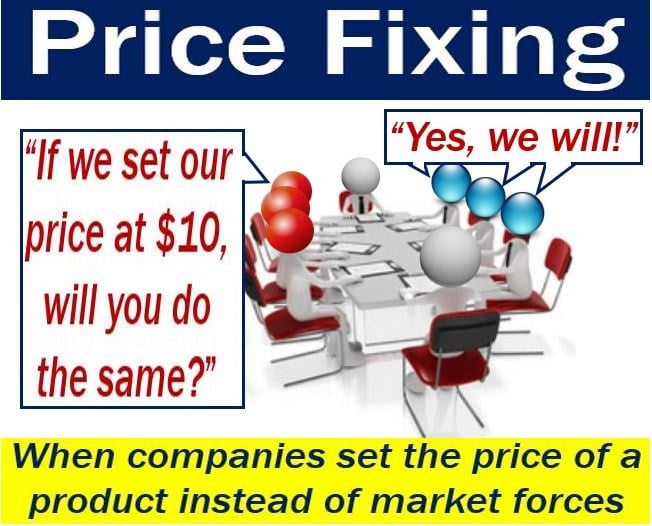Price fixing occurs when two or more companies get together to determine the price of a product or service. According to Australia’s Competition and Consumer Act, the term refers to the ‘fixing, controlling, or maintaining’ of prices.
Put simply; the term refers to companies getting together to set the prices of their products. In fact, in the vast majority of cases, this practice is against the law.
The term does not only relate to prices but also how it affects consumers. If companies are not competing with each other, customers won’t get a fair deal.
It is illegal for two or more competitors to collude to raise, lower, or stabilize a product’s price without justification.
The companies usually carry out their price fixing actions in secret. In other words, the activity is very difficult to detect.
Two rivals may have inexplicable business behavior patterns. There may also be a worrying lack of transparency regarding their businesses. In many cases, the competing companies are fixing their prices.

Price Fixing – some examples
Scania AB, a Swedish manufacturer of heavy trucks and buses, was fined €880 million for breach of US antitrust rules.
The European Commission found that Scania and five other truck manufacturers were fixing prices. They also transferred the costs of new technologies to meet stringent emission standards.
The French government fined thirteen perfume brands and three vendors for price collusion. The manipulation of prices had taken place between 1997 and 2000.
Among the thirteen culprits were some prestigious names, including Chanel, L’Oréal, and Pacific Creation Perfumes.
Price fixing legislation
Some economists believe that legislation to regulate price fixing may be counter-productive. In other words, it may do more harm than good.
They say that price fixing legislation may discourage the creation of new companies in the marketplace.
Also, implementing price fixing legislation is not easy.
Price fixing is even bad for the competitors themselves. Their collusion to act in one way in the market destroys innovation. Innovation refers to inventing, creating, and producing new products, process methods, or business models.
As a result, competitors in a particular market cannot establish an optimal price for their product. This generates a static market in the long term. In fact, profits in the entire sector eventually decline and may dry up completely.
According to FreeAdvice Legal:
“Price fixing is a conspiracy between business competitors to set their prices to buy or sell goods or services at a certain price point.”
Video – What is price fixing?
This Competition and Markets Authority video explains what price fixing is. It also tells us why it is bad for customers.
